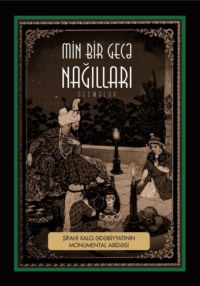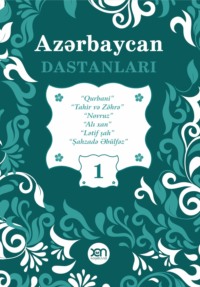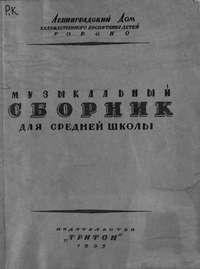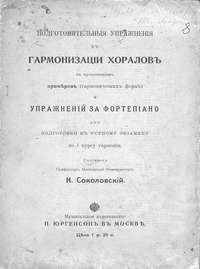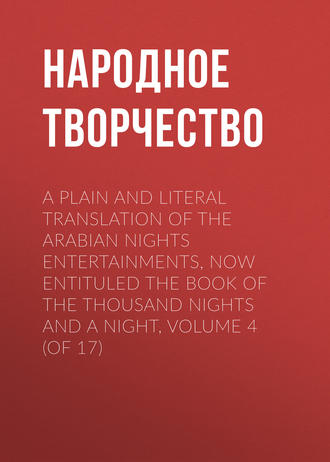 полная версия
полная версияA plain and literal translation of the Arabian nights entertainments, now entituled The Book of the Thousand Nights and a Night, Volume 4 (of 17)
She said, It hath reached me, O auspicious King that Ala al-Din joined company with Mahmud of Balkh who, before beginning the march, charged the youth’s cook to dress nothing for him, but himself provided him and his company with meat and drink. Now he had four houses, one in Cairo, another in Damascus, a third in Aleppo and a fourth in Baghdad. So they set out and ceased not journeying over waste and wold till they drew near Damascus, when Mahmud sent his slave to Ala al-Din, whom he found sitting and reading. He went up to him and kissed his hands, and Ala al-Din having asked him what he wanted, he answered, “My master saluteth thee and craveth thy company to a banquet at his place.” Quoth the youth, “Not till I consult my father Kamál al-Din, the captain of the caravan.” So he asked advice of the Makaddam,44 who said, “Do not go.” Then they left Damascus and journeyed on till they came to Aleppo, where Mahmud made a second entertainment and sent to invite Ala al-Din; but he consulted the Chief Cameleer who again forbade him. Then they marched from Aleppo and fared on, till there remained between them and Baghdad only a single stage. Here Mahmud prepared a third feast and sent to bid Ala al-Din to it: Kamal al-Din once more forbade his accepting it, but he said, “I must needs go.” So he rose and, slinging a sword over his shoulder, under his clothes, repaired to the tent of Mahmud of Balkh, who came to meet him and saluted him. Then he set before him a sumptuous repast and they ate and drank and washed hands. At last Mahmud bent towards Ala al-Din to snatch a kiss from him, but the youth received the kiss on the palm of his hand and said to him, “What wouldest thou be at?” Quoth Mahmud, “In very sooth I brought thee hither that I might take my pleasure with thee in this jousting-ground, and we will comment upon the words of him who saith: —
Say, canst not come to us one momentling, ✿ Like milk of ewekin or aught glistening,And eat what liketh thee of dainty cate, ✿ And take thy due of fee in silverling,And bear whatso thou wilt, without mislike, ✿ Of spanling, fistling or a spanlong thing?”Then Mahmud of Balkh would have laid hands on Ala al-Din to ravish him; but he rose and baring his brand, said to him, “Shame on thy gray hairs! Hast thou no fear of Allah, and He of exceeding awe?45 May He have mercy on him who saith: —
Preserve thy hoary hairs from soil and stain, ✿ For whitest colours are the easiest stained!”And when he ended his verses he said to Mahmud of Balkh, “Verily this merchandise46 is a trust from Allah and may not be sold. If I sold this property to other than thee for gold, I would sell it to thee for silver; but by Allah, O filthy villain, I will never again company with thee; no, never!” Then he returned to Kamal al-Din the guide and said to him, “Yonder man is a lewd fellow, and I will no longer consort with him nor suffer his company by the way.” He replied, “O my son, did I not say to thee: – Go not near him? But if we part company with him, I fear destruction for ourselves; so let us still make one caravan.” But Ala al-Din cried, “It may not be that I ever again travel with him.” So he loaded his beasts and journeyed onwards, he and his company, till they came to a valley, where Ala al-Din would have halted, but the Cameleer said to him, “Do not halt here; rather let us fare forwards and press our pace, so haply we make Baghdad before the gates are closed, for they open and shut them with the sun, in fear lest the Rejectors47 should take the city and throw the books of religious learning into the Tigris.” But Ala al-Din replied to him, “O my father, I came not forth from home with this merchandise, or travelled hither for the sake of traffic, but to divert myself with the sight of foreign lands and folks;” and he rejoined, “O my son, we fear for thee and for thy goods from the wild Arabs.” Whereupon the youth answered, “Harkye, fellow, art thou master or man? I will not enter Baghdad till the morning, that the sons of the city may see my merchandise and know me.” “Do as thou wilt,” said the other; “I have given thee the wisest advice, but thou art the best judge of thine own case.” Then Ala al-Din bade them unload the mules and pitch the tent; so they did his bidding and abode there till the middle of the night, when he went out to obey a call of nature and suddenly saw something gleaming afar off. So he said to Kamal al-Din, “O captain, what is yonder glittering?” The Cameleer sat up and, considering it straitly, knew it for the glint of spear-heads and the steel of Badawi weapons and swords. And lo and behold! this was a troop of wild Arabs under a chief called Ajlán Abú Náib, Shaykh of the Arabs, and when they neared the camp and saw the bales and baggage, they said one to another, “O night of loot!” Now when Kamal al-Din heard these their words he cried, “Avaunt, O vilest of Arabs!” But Abu Naib so smote him with his throw-spear in the breast, that the point came out gleaming from his back, and he fell down dead at the tent-door. Then cried the water-carrier,48 “Avaunt, O foulest of Arabs!” and one of them smote him with a sword upon the shoulder, that it issued shining from the tendons of the throat, and he also fell down dead. (And all this while Ala al-Din stood looking on.) Then the Badawin surrounded and charged the caravan from every side and slew all Ala al-Din’s company without sparing a man: after which they loaded the mules with the spoil and made off. Quoth Ala al-Din to himself, “Nothing will slay thee save thy mule and thy dress!”; so he arose and put off his gown and threw it over the back of a mule, remaining in his shirt and bag-trousers only; after which he looked towards the tent-door and, seeing there a pool of gore flowing from the slaughtered, wallowed in it with his remaining clothes till he was as a slain man drowned in his own blood. Thus it fared with him; but as regards the Shaykh of the wild Arabs, Ajlan, he said to his banditti, “O Arabs, was this caravan bound from Egypt for Baghdad or from Baghdad for Egypt?” – And Shahrazad perceived the dawn of day and ceased saying her permitted say.
Now when it was the Two Hundred and Fifty-fifth Night,She said, It hath reached me, O auspicious King that when the Badawi asked his banditti, “O Arabs, was this caravan bound from Egypt for Baghdad or from Baghdad for Egypt?”; they answered, “’Twas bound from Egypt for Baghdad;” and he said, “Return ye to the slain, for methinks the owner of this caravan is not dead.” So they turned back to the slain and fell to prodding and slashing them with lance and sword till they came to Ala al-Din, who had thrown himself down among the corpses. And when they came to him, quoth they, “Thou dost but feign thyself dead, but we will make an end of thee,” and one of the Badawin levelled his javelin and would have plunged it into his breast when he cried out, “Save me, O my lord Abd al-Kadir, O Saint of Gilan!” and behold, he saw a hand turn the lance away from his breast to that of Kamal al-Din the cameleer, so that it pierced him and spared himself.49 Then the Arabs made off; and, when Ala al-Din saw that the birds were flown with their god-send, he sat up and finding no one, rose and set off running; but, behold Abu Náib the Badawi looked back and said to his troop, “I see somewhat moving afar off, O Arabs!” So one of the bandits turned back and, spying Ala al-Din running, called out to him, saying, “Flight shall not forward thee and we after thee;” and he smote his mare with his heel and she hastened after him. Then Ala al-Din seeing before him a watering tank and a cistern beside it, climbed up into a niche in the cistern and, stretching himself at full length, feigned to be asleep and said, “O gracious Protector, cover me with the veil of Thy protection which may not be torn away!” And lo! the Badawi came up to the cistern and, standing in his stirrup-irons put out his hand to lay hold of Ala al-Din; but he said, “O my lady Nafísah50! Now is thy time!” And behold, a scorpion stung the Badawi in the palm and he cried out, saying, “Help, O Arabs! I am stung;” and he alighted from his mare’s back. So his comrades came up to him and mounted him again, asking, “What hath befallen thee?” whereto he answered, “A young scorpion51 stung me.” So they departed, with the caravan. Such was their case; but as regards Ala al-Din, he tarried in the niche, and Mahmud of Balkh bade load his beasts and fared forwards till he came to the Lion’s Copse where he found Ala al-Din’s attendants all lying slain. At this he rejoiced and went on till he reached the cistern and the reservoir. Now his mule was athirst and turned aside to drink, but she saw Ala al-Din’s shadow in the water and shied and started; whereupon Mahmud raised his eyes and, seeing Ala al-Din lying in the niche, stripped to his shirt and bag-trousers, said to him, “What man this deed to thee hath dight and left thee in this evil plight?” Answered Ala al-Din, “The Arabs,” and Mahmud said, “O my son, the mules and the baggage were thy ransom; so do thou comfort thyself with his saying who said: —
If thereby man can save his head from death, ✿ His good is worth him but a slice of nail!
But now, O my son, come down and fear no hurt.” Thereupon he descended from the cistern-niche and Mahmud mounted him on a mule, and they fared on till they reached Baghdad, where he brought him to his own house and carried him to the bath, saying to him, “The goods and money were the ransom of thy life, O my son; but, if thou wilt hearken to me, I will give thee the worth of that thou hast lost, twice told.” When he came out of the bath, Mahmud carried him into a saloon decorated with gold with four raised floors, and bade them bring a tray with all manner of meats. So they ate and drank and Mahmud bent towards Ala al-Din to snatch a kiss from him; but he received it upon the palm of his hand and said, “What, dost thou persist in thy evil designs upon me? Did I not tell thee that, were I wont to sell this merchandise to other than thee for gold, I would sell it thee for silver?” Quoth Mahmud, “I will give thee neither merchandise nor mule nor clothes save at this price; for I am gone mad for love of thee, and bless him who said: —
Told us, ascribing to his Shaykhs, our Shaykh ✿ Abú Bilál, these words they wont to utter:52Unhealed the lover wones of love desire, ✿ By kiss and clip; his only cure’s to futter!”Ala al-Din replied, “Of a truth this may never be, take back thy dress and thy mule and open the door that I may go out.” So he opened the door, and Ala al-Din fared forth and walked on, with the dogs barking at his heels, and he went forwards through the dark when behold, he saw the door of a mosque standing open and, entering the vestibule, there took shelter and concealment; and suddenly a light approached him and on examining it he saw that it came from a pair of lanthorns borne by two slaves before two merchants. Now one was an old man of comely face and the other a youth; and he heard the younger say to the elder, “O my uncle, I conjure thee by Allah, give me back my cousin!” The old man replied, “Did I not forbid thee, many a time, when the oath of divorce was always in thy mouth, as it were Holy Writ?” Then he turned to his right and, seeing Ala al-Din as he were a slice of the full moon, said to him, “Peace be with thee! who art thou, O my son?” Quoth he, returning the salutation of peace, “I am Ala al-Din, son of Shams al-Din, Consul of the merchants for Egypt. I besought my father for merchandise; so he packed me fifty loads of stuffs and goods,” – And Shahrazad perceived the dawn of day and ceased to say her permitted say.
Now when it was the Two Hundred and Fifty-sixth Night,She said, It hath reached me, O auspicious King, that Ala al-Din continued, “So he packed me fifty loads of goods and gave me ten thousand dinars, wherewith I set out for Baghdad; but when I reached the Lion’s Copse, the wild Arabs came out against me and took all my goods and monies. So I entered the city knowing not where to pass the night and, seeing this place, I took shelter here.” Quoth the old man, “O my son, what sayest thou to my giving thee a thousand dinars and a suit of clothes and a mule worth other two thousand?” Ala al-Din asked, “To what end wilt thou give me these things, O my uncle?” and the other answered, “This young man who accompanieth me, is the son of my brother and an only son; and I have a daughter called Zubaydah53 the lutist, an only child who is a model of beauty and loveliness, so I married her to him. Now he loveth her, but she loatheth him; and when he chanced to take an oath of triple divorcement and broke it, forthright she left him. Whereupon he egged on all the folk to intercede with me to restore her to him; but I told him that this could not lawfully be save by an intermediate marriage, and we have agreed to make some stranger the intermediary54 in order that none may taunt and shame him with this affair. So, as thou art a stranger, come with us and we will marry thee to her; thou shalt lie with her to-night and on the morrow divorce her and we will give thee what I said.” Quoth Ala al-Din to himself, “By Allah, to bide the night with a bride on a bed in a house is far better than sleeping in the streets and vestibules!” So he went with them to the Kazi whose heart, as soon as he saw Ala al-Din, was moved to love him, and who said to the old man, “What is your will?” He replied, “We wish to make this young man an intermediary husband for my daughter; but we will write a bond against him binding him to pay down by way of marriage-settlement ten thousand gold pieces. Now if after passing the night with her he divorce her in the morning, we will give him a mule and dress each worth a thousand dinars, and a third thousand of ready money; but if he divorce her not, he shall pay down the ten thousand dinars according to contract.” So they agreed to the agreement and the father of the bride to be received his bond for the marriage-settlement. Then he took Ala al-Din and, clothing him anew, carried him to his daughter’s house and there he left him standing at the door, whilst he himself went in to the young lady and said, “Take the bond of thy marriage-settlement, for I have wedded thee to a handsome youth by name Ala al-Din Abu al-Shamat: so do thou use him with the best of usage.” Then he put the bond into her hands and left her and went to his own lodging. Now the lady’s cousin had an old duenna who used to visit Zubaydah, and he had done many a kindness to this woman, so he said to her, “O my mother, if my cousin Zubaydah see this handsome young man, she will never after accept my offer; so I would fain have thee contrive some trick to keep her and him apart.” She answered, “By the life of thy youth,55 I will not suffer him to approach her!” Then she went to Ala al-Din and said to him, “O my son, I have a word of advice to give thee, for the love of Almighty Allah and do thou accept my counsel, as I fear for thee from this young woman: better thou let her lie alone and feel not her person nor draw thee near to her.” He asked, “Why so?”; and she answered, “Because her body is full of leprosy and I dread lest she infect thy fair and seemly youth.” Quoth he, “I have no need of her.” Thereupon she went to the lady and said the like to her of Ala al-Din; and she replied, “I have no need of him, but will let him lie alone, and on the morrow he shall gang his gait.” Then she called a slave-girl and said to her, “Take the tray of food and set it before him that he may sup.” So the handmaid carried him the tray of food and set it before him and he ate his fill: after which he sat down and raised his charming voice and fell to reciting the chapter called Y. S.56 The lady listened to him and found his voice as melodious as the psalms of David sung by David himself,57 which when she heard, she exclaimed, “Allah disappoint the old hag who told me that he was affected with leprosy! Surely this is not the voice of one who hath such a disease; and all was a lie against him.”58 Then she took a lute of India-land workmanship and, tuning the strings, sang to it in a voice so sweet its music would stay the birds in the heart of heaven; and began these two couplets: —
I love a fawn with gentle white-black eyes, ✿ Whose walk the willow-wand with envy kills:Forbidding me he bids for rival mine, ✿ Tis Allah’s grace who grants to whom He wills!And when he heard her chant these lines he ended his recitation of the chapter, and began also to sing and repeated the following couplet: —
My Salám to the Fawn in the garments concealed, ✿ And to roses in gardens of cheek revealed.
The lady rose up when she heard this, and her inclination for him redoubled and she lifted the curtain; and Ala al-Din, seeing her, recited these two couplets: —
She shineth forth, a moon, and bends, a willow-wand, ✿ And breathes out ambergris, and gazes, a gazelle.Meseems as if grief loved my heart and when from her ✿ Estrangement I abide possession to it fell.59Thereupon she came forward, swinging her haunches and gracefully swaying a shape the handiwork of Him whose boons are hidden; and each of them stole one glance of the eyes that cost them a thousand sighs. And when the shafts of the two regards which met rankled in his heart, he repeated these two couplets: —
She ‘spied the moon of Heaven, reminding me ✿ Of nights when met we in the meadows li’en:True, both saw moons, but sooth to say, it was ✿ Her very eyes I saw, and she my eyne.And when she drew near him, and there remained but two paces between them, he recited these two couplets: —
She spread three tresses of unplaited hair ✿ One night, and showed me nights not one but four;And faced the moon of Heaven with her brow, ✿ And showed me two-fold moons in single hour.And as she was hard by him he said to her, “Keep away from me, lest thou infect me.” Whereupon she uncovered her wrist60 to him, and he saw that it was cleft, as it were in two halves, by its veins and sinews and its whiteness was as the whiteness of virgin silver. Then said she, “Keep away from me, thou! for thou art stricken with leprosy, and may be thou wilt infect me.” He asked, “Who told thee I was a leper?” and she answered, “The old woman so told me.” Quoth he, “’Twas she told me also that thou wast afflicted with white scurvy;” and so saying, he bared his forearms and showed her that his skin was also like virgin silver. Thereupon she pressed him to her bosom and he pressed her to his bosom and the twain embraced with closest embrace, then she took him and, lying down on her back, let down her petticoat-trousers, and in an instant that which his father had left him rose up in rebellion against him and he said, “Go it, O Shaykh Zachary61 of shaggery, O father of veins!”; and putting both hands to her flanks, he set the sugar-stick62 to the mouth of the cleft and thrust on till he came to the wicket called “Pecten.” His passage was by the Gate of Victories63 and therefrom he entered the Monday market, and those of Tuesday and Wednesday and Thursday,64 and, finding the carpet after the measure of the daïs-floor,65 he plied the box within its cover till he came to the end of it. And when morning dawned he cried to her, “Alas for delight which is not fulfilled! The raven66 taketh it and flieth away!” She asked, “What meaneth this saying?”; and he answered, “O my lady, I have but this hour to abide with thee.” Quoth she, “Who saith so?” and quoth he, “Thy father made me give him a written bond to pay ten thousand dinars to thy wedding-settlement; and, except I pay it this very day, they will imprison me for debt in the Kazi’s house; and now my hand lacketh one half-dirham of the sum.” She asked, “O my lord, is the marriage-bond in thy hand or in theirs?”; and he answered, “O my lady, in mine, but I have nothing.” She rejoined, “The matter is easy; fear thou nothing. Take these hundred dinars: an I had more, I would give thee what thou lackest; but of a truth my father, of his love for my cousin, hath transported all his goods, even to my jewellery, from my lodging to his. But when they send thee a serjeant of the Ecclesiastical Court,” – And Shahrazad perceived the dawn of day and ceased to say her permitted say.
Now when it was the Two Hundred and Fifty-seventh Night,She said, It hath reached me, O auspicious King, that the young lady rejoined to Ala al-Din, “And when they send thee at an early hour a serjeant of the Ecclesiastical Court, and the Kazi and my father bid thee divorce me, do thou reply, By what law is it lawful and right that I should marry at nightfall and divorce in the morning? Then kiss the Kazi’s hand and give him a present, and in like manner kiss the Assessors’ hands and give each of them ten gold pieces. So they will all speak with thee, and if they ask thee, Why dost thou not divorce her and take the thousand dinars and the mule and suit of clothes, according to contract duly contracted? do thou answer, Every hair of her head is worth a thousand ducats to me and I will never put her away, neither will I take a suit of clothes nor aught else. And if the Kazi say to thee, Then pay down the marriage settlement, do thou reply, I am short of cash at this present; whereupon he and the Assessors will deal in friendly fashion with thee and allow thee time to pay.” Now whilst they were talking, behold, the Kazi’s officer knocked at the door; so Ala al-Din went down and the man said to him, “Come, speak the Efendi,67 for thy father-in-law summoneth thee.” So Ala al-Din gave him five dinars and said to him, “O Summoner, by what law am I bound to marry at nightfall and divorce next morning?” The serjeant answered, “By no law of ours at all, at all; and if thou be ignorant of the religious law, I will act as thine advocate.” Then they went to the divorce-court and the Kazi said to Ala al-Din, “Why dost thou not put away the woman and take what falleth to thee by the contract?” Hearing this he went up to the Kazi; and, kissing his hand, put fifty dinars in it and said, “O our lord the Kazi, by what law is it lawful and right that I should marry at nightfall and divorce in the morning in my own despite?” The Kazi answered, “Divorce on compulsion and by force is sanctioned by no school of the Moslems.” Then said the young lady’s father, “If thou wilt not divorce, pay me the ten thousand dinars, her marriage-settlement.” Quoth Ala al-Din, “Give me a delay of three days;” but the Kazi said, “Three days is not time enough; he shall give thee ten.” So they agreed to this and bound him after ten days either to pay the dowry or to divorce her. And after consenting he left them and taking meat and rice and clarified butter68 and what else of food he needed, returned to the house and told the young woman all that had passed; whereupon she said, “’Twixt night and day, wonders may display; and Allah bless him for his say: —
Be mild when rage shall come to afflict thy soul; ✿ Be patient when calamity breeds ire;Lookye, the Nights are big with child by Time, ✿ Whose pregnancy bears wondrous things and dire.”Then she rose and made ready food and brought the tray, and they two ate and drank and were merry and mirthful. Presently, Ala al-Din besought her to let him hear a little music; so she took the lute and played a melody that had made the hardest stone dance for glee, and the strings cried out in present ecstacy, “O Loving One!”;69 after which she passed from the adagio into the presto and a livelier measure. As they thus spent their leisure in joy and jollity and mirth and merriment, behold, there came a knocking at the door and she said to him; “Go see who is at the door.” So he went down and opened it and finding four Dervishes standing without, said to them, “What want ye?” They replied, “O my lord, we are foreign and wandering religious mendicants, the viands of whose souls are music and dainty verse, and we would fain take our pleasure with thee this night till morning doth appear, when we will wend our way, and with Almighty Allah be thy reward; for we adore music and there is not one of us but knoweth by heart store of odes and songs and ritornellos.”70 He answered, “There is one I must consult;” and he returned and told Zubaydah who said, “Open the door to them.” So he brought them up and made them sit down and welcomed them; then he fetched them food, but they would not eat and said, “O our lord, our meat is to repeat Allah’s name in our hearts and to hear music with our ears: and bless him who saith: —
Our aim is only converse to enjoy, ✿ And eating joyeth only cattle-kind.71
And just now we heard pleasant music in thy house, but when we entered, it ceased; and fain would we know whether the player was a slave-girl, white or black, or a maiden of good family.” He answered, “It was this my wife,” and told them all that had befallen him, adding, “Verily my father-in-law hath bound me to pay a marriage settlement of ten thousand dinars for her, and they have given me ten days’ time.” Said one of the Dervishes, “Have no care and think of naught but good; for I am Shaykh of the Convent and have forty Dervishes under my orders. I will presently collect from them the ten thousand dinars and thou shalt pay thy father-in-law the wedding settlement. But now bid thy wife make us music that we may be gladdened and pleasured; for to some folk music is meat, to others medicine and to others refreshing as a fan.” Now these four Dervishes were none other than the Caliph Harun al-Rashid, his Wazir Ja’afar the Barmecide, Abu al-Nowás al-Hasan son of Háni72 and Masrur the sworder; and the reason of their coming to the house was that the Caliph, being heavy at heart, had summoned his Minister and said, “O Wazir! it is our will to go down to the city and pace its streets, for my breast is sore straitened.” So they all four donned dervish-dress and went down and walked about, till they came to that house where, hearing music, they were minded to know the cause. They spent the night in joyance and harmony and telling tale after tale until morning dawned, when the Caliph laid an hundred gold pieces under the prayer-carpet and all taking leave of Ala al-Din, went their way. Now when Zubaydah lifted the carpet she found beneath it the hundred dinars and she said to her husband, “Take these hundred dinars which I have found under the prayer-carpet; assuredly the Dervishes when about to leave us laid them there, without our knowledge.” So Ala al-Din took the money and, repairing to the market, bought therewith meat and rice and clarified butter and all they required. And when it was night, he lit the wax-candles and said to his wife, “The mendicants, it is true, have not brought the ten thousand dinars which they promised me; but indeed they are poor men.” As they were talking, behold, the Dervishes knocked at the door and she said, “Go down and open to them.” So he did her bidding and bringing them up, said to them, “Have you brought me the ten thousand dinars you promised me?” They answered, “We have not been able to collect aught thereof as yet; but fear nothing: Inshallah, to-morrow we will compound for thee some alchemical cookery. But now bid thy wife play us her very best pieces and gladden our hearts for we love music.” So she took her lute and made them such melody that had caused the hardest rocks to dance with glee; and they passed the night in mirth and merriment, converse and good cheer, till morn appeared with its sheen and shone, when the Caliph laid an hundred gold pieces under the prayer-carpet and all, after taking leave of Ala al-Din, went their way. And they ceased not to visit him thus every night for nine nights; and each morning the Caliph put an hundred dinars under the prayer-carpet, till the tenth night, when they came not. Now the reason of their failure to come was that the Caliph had sent to a great merchant, saying to him, “Bring me fifty loads of stuffs, such as come from Cairo,” – And Shahrazad perceived the dawn of day and ceased saying her permitted say.


